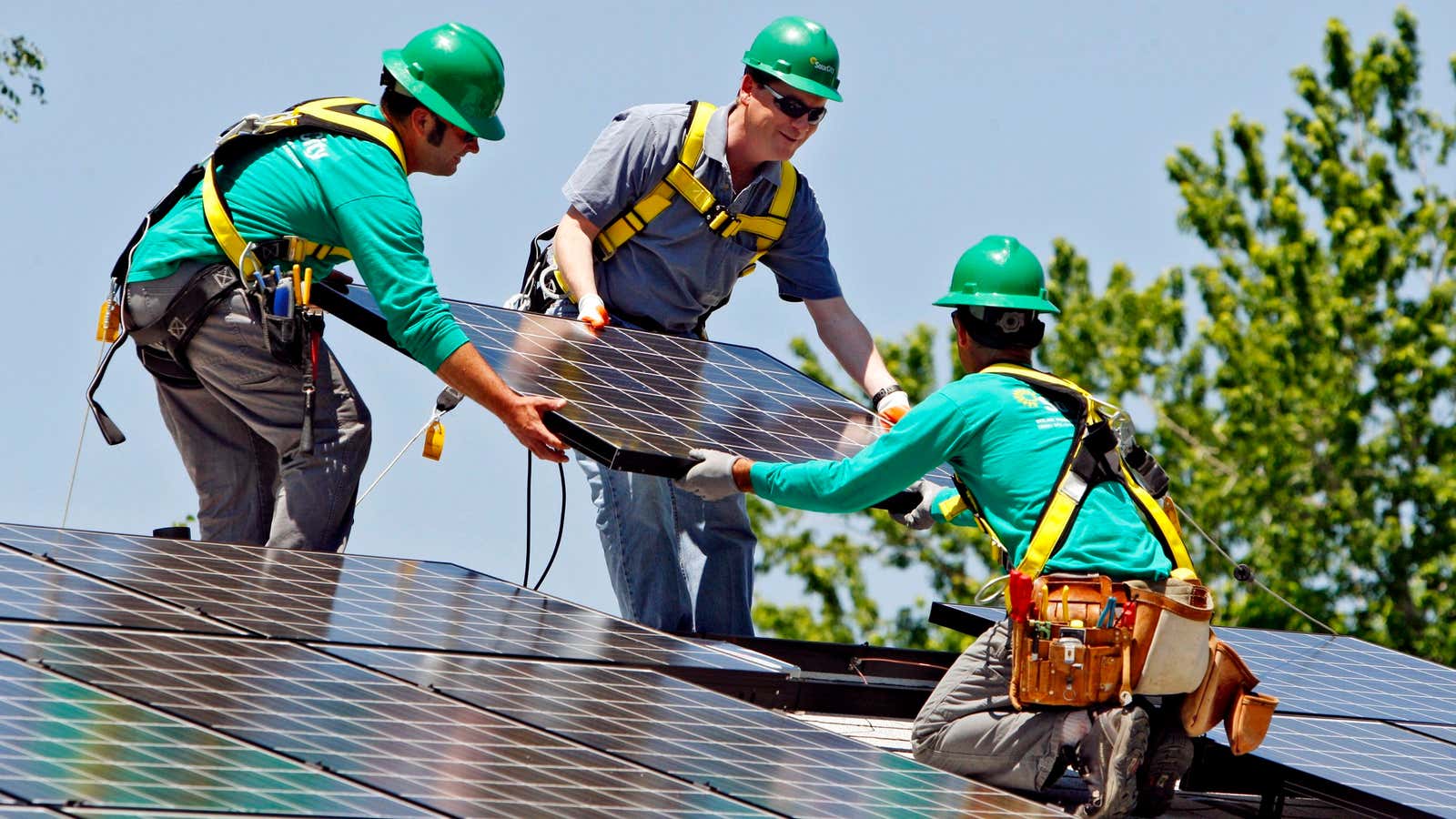Solar panel installer SolarCity has relied on big banks and corporate investors to finance solar arrays for homeowners that let them cut the cord to their utility. Now the US’s largest photovoltaic panel installer wants to crowdsource additional billions of dollars by letting mom-and-pop investors buy solar asset-backed securities through its website.
Call it distributed finance. It’s another example of how the pell-mell growth of the US rooftop solar industry is being driven far more by financial innovation than by technological breakthroughs. First came solar leasing, which allows American homeowners to avoid the five-figure costs of installing a solar panel system by paying a monthly fee that often is less than what they would pay their utility for electricity.
Then came solar securitization. In November, SolarCity, whose chairman is Tesla Motors chief executive Elon Musk, sold $54.4 million worth of securities backed by solar leases it had signed with homeowners. Those contracts typically are for 20-year terms, providing investors with a guaranteed cash flow. Those securities, however, were sold only to so-called qualified investors—wealthy individuals and institutions that could afford to take a loss.
Now SolarCity wants to sell solar securities and other financial products to an even more diverse pool of investors: ordinary people who might already maintain a brokerage account at, say Merrill Lynch, or those who want to support their environmental convictions with cash. “It’s taking advantage of the changes in the financial industry that have been driven by technology,” Tim Newell, SolarCity’s vice president for financial products, told Quartz.
Those changes include the development of online crowdfunding platforms that directly connect investors—be they individuals or huge pension funds—to companies seeking to raise capital. For instance, startups like Mosaic of Oakland, California, let investors shop for solar projects vetted by the company and invest as little as $25.
Beginning later this year, SolarCity will also allow people to invest through its website. SolarCity has acquired Newell’s company, Common Assets, which will supply the technology for its trading platform. The twist is that the only financial products on offer will be those backed by SolarCity’s assets. Newell says government regulations bar him from discussing what kinds of securities SolarCity will offer until the US Securities and Exchange Commission has approved them. The company’s chief financial officer, Bob Kelly, said in November that SolarCity expects to sell $200 million worth of securities in the first half of 2014.
SolarCity, Mosaic and other crowdfunding companies like to talk about how they’re democratizing financing, letting Main Street America get a piece of Wall Street’s action. That’s all well and good but the bottom line is that solar securitization and online crowdfunding lower the cost of capital for renewable energy projects.
For instance, SolarCity is paying investors who bought the $54.4 million worth of securities in November a 4.8% interest rate compared to the 8%-to-9% it typically pays to banks and corporate investors. Those big investors are expected to lose interest in renewable energy projects once a federal tax incentive declines from 30% to 10% at the end of 2016.




